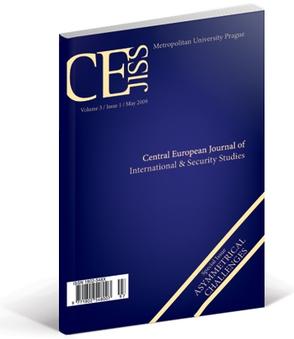Central European Journal of International and Security Studies
Metropolitan University Prague
Deadline: Sun, 11 Jun 2023


This thematic section is focused on the role of advanced AI – especially large language models (LLMs) such as ChatGPT, Bing Chat or Google Bard – in university education and, more broadly, all situations when we learn, teach or produce knowledge. Contributors to this thematic section may adopt descriptive, analytical, prescriptive or normative stances on pedagogy and authoring academic papers and shall speak to International Relations (IR) or related disciplines. If ChatGPT and other similar types of AI prove to be as decisive as some argue, social sciences will experience a dramatic transformation. Hence, this thematic section aspires to have a broader (disciplinary, programmatic) significance, yet without necessarily discussing particular IR theories.
We are interested in contributions that address different facets of the topic from various perspectives. However, we are primarily keen to see contributions that respond to the following questions.
- How are LLMs and their interactive interfaces (like ChatGPT) able to fulfil the usual methodological criteria, such as validity, reliability, replicability and justification of analytical/intellectual steps?
- To what extent and in which ways can AI help stimulate creativity, including theoretical and conceptual innovations?
- How are emotions tied to human-AI interactions? How do emotions in humans’ prompts influence outcomes (texts) produced by LLMs; how do LLMs (re-)produce emotions; how are students and teachers emotionally influenced when working with LLMs?
- How can the usage of AI be connected with the aspirations to decolonise university education? Can AI help productively deconstruct the authority of teachers/professors and democratise knowledge production?
- Are there specific tasks in which AI is particularly effective (literature review, data collection etc.)? What is the best way of utilising AI for these tasks?
- What are the existing policies towards utilising AI in the academic environment? What do they cover well, and what do they miss?
- What are good pedagogical practices, including in-class activities and different types of assignments?
- What effects will the use of LLMs have on trust in science and academic knowledge?
- To what extent will the system of science evaluation need to be amended?
In the thematic section, we will try to strike a balance between 1) abstract (argumentative), 2) experience-based and 3) systematically researched papers. In other words, we welcome contributions that:
- build upon the existing debates about pedagogy, social science theories or social impact of technologies to offer innovative arguments about AI in the realm of university education and knowledge production;
- reflect upon recent pedagogical experience when dealing with LLMs and offer innovative reflections or suggestions of good practices;
- systematically map how universities have responded to the rapid rise of LLMs or which effects LLMs have already had on teaching, learning and knowledge production.
Thematic section
The thematic sections of CEJISS aim to facilitate a forum for authors to publish timely academic reflections on selected topics. The length of thematic section contributions is 4,000-8,000 words (including abstract, references, footnotes).
Contributions to thematic sections may include the following types of articles.
- Standard research articles whose ambitions, research goal and framework are adjusted to the length of thematic section contributions (4,000-8,000 words). Papers with a strong narrative are particularly encouraged.
- Sophisticated academic essays (op-eds) that develop or build on the existing theoretical repertoire of International Relations (or related disciplines), offer a clear argument and contribute to academic debates.
Articles that lie between the two aforementioned types of papers are also appreciated. In any case, thematic section contributions should be of a scholarly character.
Please follow our submission guidelines. For more information about our thematic sections, please see here.
Timeline
- Deadline for abstracts (about 200 words): 11 June 2023
- Abstract selection (acceptance emails): 30 June 2023
- Final manuscript submission deadline: 31 September 2023
- Review process and paper revisions: September-December 2023
- Ahead of print publication: December 2023-February 2024
- Standard (print) publication: 15 March 2024











